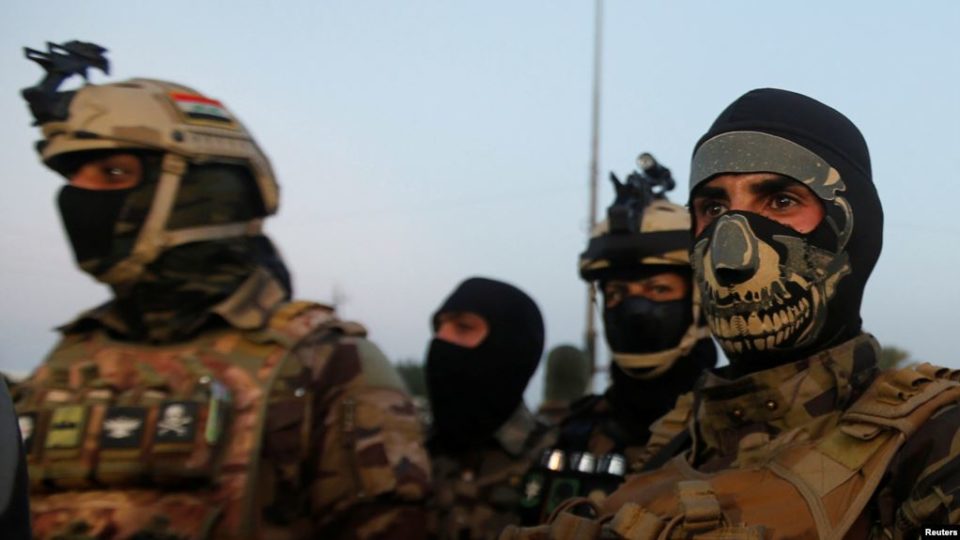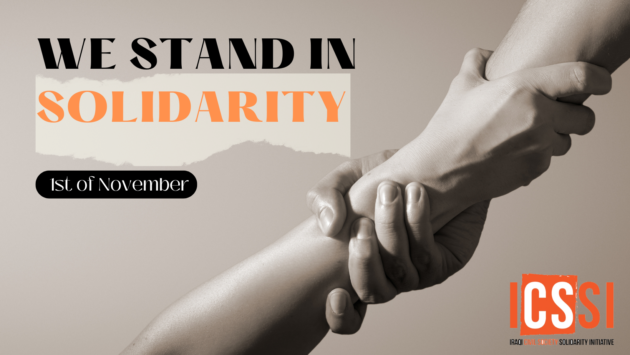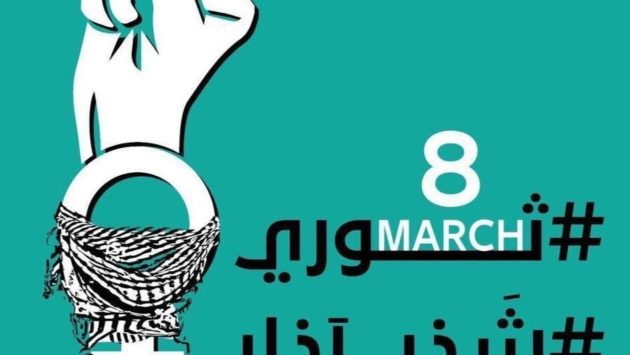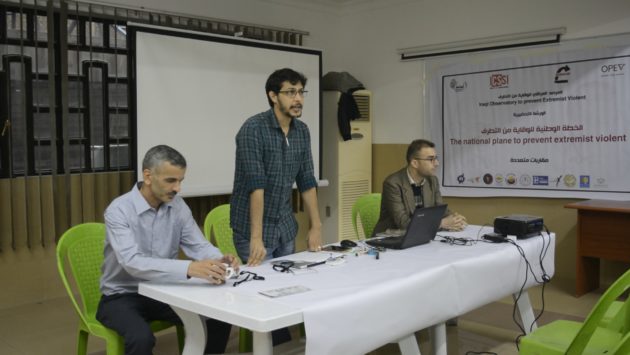Are The Iraqi Protests Over?
It is clear that the political forces and the armed militias that control the decisions of Iraqi officials have chosen categorically not to look at any of the data emerging from the Iraqi protests, and will not consider productive options about how to deal with them. Instead they have chosen the easy way: to break up forcefully and often with extreme violence both the sit-ins and peaceful demonstrations, and to violate the rights of those believed to be the most active in the nonviolent October uprising. Escalating crises is not an unusual policy for recent Iraqi politicians; in fact, it is probably the most common strategy of those Iraqi leaders who have failed since 2003 to produce genuine solutions to the problems the country and its citizens face. They have watched from their positions of power and privilege as the anger, despair and frustration of every day Iraqi citizens mounts. Corruption has grown and spread as these officials within the government sold political positions and enacted policies which favor not the Iraqi people but foreigners and themselves. After years, this approach has led to a massive social movement, with a known beginning but an end yet to be determined.
The current regime insists, against evidence to the contrary, that it has received unlimited regional and international support for its attempts to repress the nonviolent protests.
Iraqi leaders for years have created a circus of corruption, fraud and deception which continues to impede their understanding of the current popular nonviolent movement. They are quick to declare victory over the people using traditional tools of repression and excessive violence in response to peaceful demonstrations. They have kidnapped nonviolent protesters and arrested them without cause, and they shamelessly manipulate the judicial system to fabricate charges against dissidents.
All the while, the regime suggests that this abhorrent behavior has earned it unlimited regional and international support. Spreading despair, squashing hopes for the possibility of positive constitutional change, the regime works tirelessly to unearth and destroy the deep roots of this movement so that it cannot reach to more developed stages.
The Iraqi government, guided by the will of those currently in power, along with the interests of sectarian princes, Iranians and Americans, has succeeded in keeping the scale and level of its criminal repression of the peaceful demonstrators under wraps.
The government has also tried to defend itself by alluding to the need to maintain stability in Iraq, required internationally since the defeat of Daesh. They warn of the possibility of a return of extremist groups who could regain control of Iraqi cities. These politicians have gone so far as to use the issue of stability to urge important countries around the world, as well as the United Nations Mission in Iraq, to remain silent on a number of flagrant violations of civilians committed by official security forces, and on the use of unofficial militias to carry out similar crimes.
Like a scene from a black comedy, political forces involved in corruption have succeeded in making some gains from the protests leveled against them. They have chosen ministers not by merit, but according to quotas. This was also the case with the Federal Service Council and the Iraqi media network — hundreds of private positions were awarded through the corrupt quota system. They also made deals that would have been canceled immediately had they not come under the shadow of the chaos caused by deceitful responses to the demonstrators’ requests. Ultimately, the government dissolved the provincial councils which further undermined the protesters.
The demonstrators seek to enact a constitutional amendment that would transform the parliamentary system into a presidential one. This is not popular with the current government, though it has precedence: the State of Law Coalition led by Nuri al-Maliki and “Asaib Ahl al-Haq” have worked for the same goal since 2010.
The violent response by authorities to the nonviolent October uprising will not stop the protesters from continuing to seek justice.
In fact, demonstrators are still talking about large structural changes, specifically, ending the unjust quota system. At the same time, political forces are refusing to deal with their most basic demands, such as the establishment of a fair electoral law, holding early elections and the establishment of an independent commission to ensure violators are held accountable for violent crimes against peaceful protesters.
Iraqi politicians have chosen to ‘resolve’ the demonstrations by force rather than dealing with the constitutionally valid requests of the demonstrators, No one to date will answer the central question about the future of the Iraqi protests, which have continued steadily in various forms since 2011. Instead, those in power, those with political positions and authority refuse to listen or engage honestly, and instead develop and implement violent mechanisms meant to increase the power of the Iraqi oligarchy.
The violence used to deal with the nonviolent October uprising reflects a choice to punish the Iraqi people, to accuse them of conspiracy rather than acknowledging and working to resolve their rightful anger. Until their voices are heard, the peaceful protesters will not give up. Tragically, the likely response from authorities will be more violence. Armed groups are trying to exploit the protests to gain power, and political forces are conspiring to benefit from the protesters’ pain and sacrifice. This is a recipe for devastation, Iraq is currently a country plagued by the lack of wisdom of its rulers. This ignorance cannot continue to rule, the future can and will be different.




